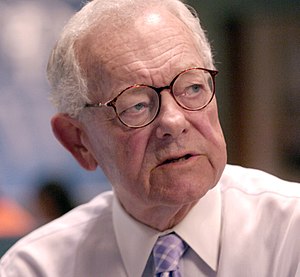Commentary Telling It Like It Is To Those That Might Not Want To Hear It & Links To News Around The Internet
Thursday, August 05, 2010
Wednesday, August 04, 2010
Tuesday, August 03, 2010
A nun was killed in a carwreck by an illegal alien. Though a tragedy, maybe the Catholic Church might reconsider it's lax and even embracing attitude towards illegal aliens. More importantly, would this sad story have even made the headlines if the victim had been a Baptist church lady rather than a Catholic worker?
Monday, August 02, 2010
Hispanic Impregnates 13 Year Old
The girl's parents are probably as much human scum as her violator and probably barely speak audible English.
Guess there are some that would claim this filth shouldn't have to show police their ID's or immigration papers.
Let's hear what the immigration status of all parties involved just happens to be.
A theonomical Christian Reconstructionist has theorized that the only valid marriages are between Christians. Unless this statement is clarified, this means that the children born to non-Christians would be illegitimate bastards & that should Reconstructionists come to power, they would deny basic civil and contractual rights to those not members of their Calvinistic churches.
Sunday, August 01, 2010
Lessons In Apologetics #3: Experientialism & Evidentialism
The next methodology is experientialism. Though fideism strives to make faith alone the justification for religious knowledge or belief, Geisler observes that this faith is ultimately justified in terms of an experience had by the individual (65).
To the experientialist, God or the Ultimate is not so much something to be understood or comprehended but rather felt. Stretching all the way back to the Neoplatonist Plotinus, experientialism views what the believer refers to as God as "the one beyond all knowing and being (66)."
In fact, God is so far beyond what the finite mind is capable of comprehending that to really say anything about God is highly inaccurate as to do so would be limiting God. As such, the best the individual can aspire to is an intuitive mystical union with the universal by turning inward through an ascetic detachment from the physical world around us in pursuit of a metaphysical unity.
Friedrich Schleiermacher provided for a more accessible apprehension of the cosmic or divine by equating religious experience not so much with monastic solitude but rather with the feeling of absolute dependence we all feel from time to time. According to Schleiermacher, this feeling is actually the World Spirit reaching out to us and actualizing within each of us.
To experientialists, dogmas and doctrines are not that important (that itself actually a doctrine though) as these conceptual formulations are merely shadows or echoes of the deeper experience. While experientialists are correct that the individual must have some kind of encounter with God beyond that often referred to as "book knowledge", one begins to trod upon dangerous ground when the experience becomes the ultimate criteria for judgment by positing that those having more intense experiences are somehow more in touch with the cosmos as in the case of certain meditation cults.
If experience itself is made the highest standard, the individual will end up not knowing whether or not he is being led into deception. I John 4:1 tells us to test the spirits to see if they are from God.
The next apologetic methodology is evidentialism. Rationalism, fideism, and experientialism are largely inwardly focused approaches to knowledge of God with both fideism and experientialism also being highly subjective as well. Evidentialism tends to be more objective as it points to evidence existing independently of an individual's internal emotional or intellectual states to make a case for the existence of God.
While experientialism stresses the importance of a personal acquaintance with what we categorize as the divine, evidentialism provides an anchor to prevent such hypothesizing from meandering off into exceedingly esoteric or individualized speculation by providing a basis for belief any interested party is free to investigate at their own leisure. The primary forms of proof offered by evidentialists are nature and history.
Nature is probably the form of evidence best used when the individual being appealed to is not yet even a theist. This proof for the existence of God is known as the teleological argument in that it holds that the intricate structures found in the world point to the need for a designer.
This idea is expressed in terms of the Watchmaker Hypothesis formulated by William Paley. Paley contended that, if one found a watch in the woods, one would from the intricacies of its parts working together in tandem for a purpose assume the contraption would need a designer. Likewise, since the world is no less complex and actually even more so, it is only logical to conclude that the physical universe around us would also require a designer.
Having lived from 1743-1805, Paley himself did not face the Darwinian onslaught. However, others since then have tweaked the argument to make it stronger against criticisms such as those of John Stuart Mill. Mill argued that the watchmaker analogy was weak because we know things like watches have watchmakers and, without a perspective beyond which a finite human being is capable, Hume's speculation of organicism with the world growing like a vegetable could very well be correct.
To counter the Darwinian and Humean notions that given enough time a number of elements could be reshuffled enough to fortuitously result in the world we see around us, A.E. Taylor and F.R. Tennat have argued that the world around us shows too much adaptation and anticipation to have been the product of random chance. For example, Taylor notes how the body’s need for oxygen is anticipated by biological structures such as membranes and organs. Geisler writes, “In fact, mind or intelligence is the only known condition that can overcome the improbabilities against the development and preservation of life...In short, the order evident in natural development of life is evidence of God (90)."
While this brand of evidentialism is vital in convincing the atheist or agnostic that God exists, it is not enough to bring someone to a saving knowledge of Christ as many of the world's religions such as Judaism, Islam, and even apostate forms of Christianity are full of theists barreling down the road to Hell. An evidentialist approach emphasizing history directly confronts the unbeliever with the decision he will have to make to decide his eternal destiny.
One of the aspects of Christianity that sets it apart from many of the other religions and belief systems is its historical nature in that the validity of its claims ultimately rest upon the veracity of actual events. II Peter 1:16 says, "For we have not followed cunningly devised fables, when we made known unto you the power and coming of our Lord Jesus Christ, but were eyewitnesses of his majesty?"
Since these events took place within the flow of normal time, by utilizing research methods similar to those used to investigate the past such as the examination of ancient documents, one can construct an intellectual framework reasonably assuming that Christ did indeed exist. Prominent evidentialists utilizing history would include John Warwick Montgomery and Lee Strobel.
Despite the strength of evidentialist apologetics, its efforts to elevate religious dialogue beyond one's internal feelings (the burning in the bosom referred to by the Mormons which could very easily be indigestion), the approach is not without drawbacks. For while facts can indeed exist as objective realities, the individual can often go to great lengths to put a spin on them that fits them into an individual’s preconceived worldview.
For example, those inclined to marvel at the world around them can more easily be persuaded that everything was created by a wise and loving God than those who view the world through a survival of the fittest mindset focusing on the violence, bloodshed, and disease that often characterizes both the human and animal realms. Evidentialists will counter that often the theistic interpretation turns out to be the most credible rather than naturalistic ones that stretch plausibility such as the Apostles absconding with Christ’s body or Jesus being revived in the cool of the tomb.
Source:
Geisler, Norman. "Christian Apologetics". Baker Academic, 1988.
By Frederick Meekins
Saturday, July 31, 2010
Friday, July 30, 2010
Thursday, July 29, 2010
Wednesday, July 28, 2010
Political Theorist Proposes How To Handle The Zombie Menace
Obama Minions Propose Involuntary Servitude
For if the contemporary woman is not going to be a stay-at-home wife and mother, on what grounds should they be exempt from a life of service or even death on behalf of the state?
If every one is equal, your life is no more valuable than mine. If men can be compelled to sacrifice against their will, why not women?
Tuesday, July 27, 2010
O'Reilly Advocates Assassinating Head Of BP
Monday, July 26, 2010
A theonomical Christian Reconstructionist posits that blasphemy is promoting lies about God and that those promulgating such ideas should be given the death penalty. How long would such a policy be in place until it was extended to cover those promoting theologies radical Calvinists abhor such as Dispensationalism and Arminianism?
If the spokesman of a Christian organization highly regarded among paleoconservatives starts to advocate the death penalty for a class of offenders that this punishment has not been applied to for centuries, isn't it a valid question to ask to what extent this reinstituted penalty would be applied? More importantly, should the head of this organization who once held high political aspirations be asked to clarify his own position regarding his underling's provacative ruminations?
Police Enforce Nonexistent Laws Regarding Photography
Saturday, July 24, 2010
Friday, July 23, 2010
Obama announces he wants his daughters to put babysitting money into savings accounts. Wonder if their accounts will be subject to the same scrutiny as everyone elses all in the name of preventing narcotics traffic, terrorism, and such related boogeyman. Or since this is the "First Children", are we not allowed to raise such questions.
Thursday, July 22, 2010
Will Paycheck Fairness Act Screw Over Men In Favor Of Women?
Wednesday, July 21, 2010
Tweets About Whale Wars
Though Whale Wars is an interesting program, in light of it, Discovery Networks should broadcast from a favorable standpoint a program about a band of prolife activists disrupting the operations of an abortion clinic.
On Whale Wars season 2, episode 8, the Japanese whalers should be applauded in their restraint by only use an acoustic weapon on the Sea Shepherd copter. These beatnik environmentalists should just be grateful a surface to air missile wasn't used.
Perhaps the Japanese whalers should get their own rubber dingies and toss noxious substances onto the Sea Shepherd ship for a change. Given the disgusting things Asians are known to eat, are pungent aromatic assaults the best way to deter the whalers?
Will there be a season of Whale Wars where the Sea Shepherds plan to harass Eskimos for hunting cetaceans? Guess the Japanese are too close to honorary White people to be able to gum up the conceptual relativism of these leftwingers by asking who are they to impose their dietary values on another culture.
The Sea Shepherds ought to be glad they are not dealing with the Japanese of the World War II era. Say what you want about that empire's faults, it's doubtful they would put up with hippies harassing that nation's ships.
Seems Paul Watson is the only crew member to grow obese on a vegetarian diet. Most of them look pathetically sickly and thin. Even the crews pet African looked plumper than the average Westerner onboard
With the sinking of the Ady Gil, maybe the organization now knows how it feels to have one of their vessels rammed.
It was stated that $5 million was paid for the Sea Shepherd's vessel the Bob Barker. Was that bid closest to the actual retail price without going over?
by Frederick Meekins


